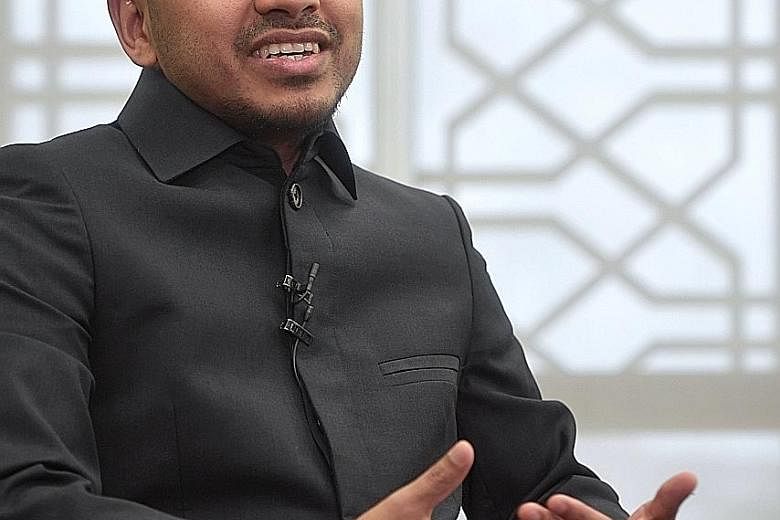As Muslims in Singapore prepare for a different Ramadan amid the Covid-19 pandemic, they are urged to keep in mind the holy month's core activities of fasting and helping those in need through alms.
Singapore's highest Islamic authority made the call yesterday, two days before Ramadan begins tomorrow evening.
Speaking to The Straits Times, Mufti Nazirudin Mohd Nasir acknowledged that many Muslims in Singapore feel a sense of grief over being unable to observe Ramadan in the traditional way.
This includes mass religious activities in mosques and sharing of meals with family. As part of Singapore's circuit breaker measures to curb the spread of Covid-19, all places of worship have been closed and all social gatherings prohibited.
But Dr Nazirudin urged Muslims to bear in mind that the holy month can still be observed.
"If you strip the month of all the additional activities, you will find that it is essentially about the act of fasting and also helping the poor and the vulnerable," he said.
"These are pillars of Islam and we can be grateful that we can still perform these pillars."
Fasting and zakat, or alms-giving, are two of Islam's five core pillars. These activities during Ramadan are compulsory for Muslims.
Dr Nazirudin advised Muslims to use the time to reflect on these two pillars and think about what they mean to each individual.
But even when the circuit breaker ends, he said, it does not mean that communal activities can all resume or celebrations for Hari Raya Aidilfitri, which marks the end of Ramadan and traditionally lasts for a month, can take place, as precautions against Covid-19 still need to be taken.
Yesterday, Prime Minister Lee Hsien Loong announced that the circuit breaker period will be extended to June 1. The festive month of Syawal, of which Hari Raya is the first day, starts on May 24.
Both Malaysia and Indonesia have told their residents to avoid making any plans to travel back to their homes for the festive period, lest the mass migration of people lead to a spike in Covid-19 cases.
Dr Nazirudin said: "Our situation is quite different from the context of Malaysia and Indonesia as (people there) have to move long distances, but we have to prepare for various scenarios. While we are not issuing specific guidance on this yet, we are telling people to prepare that it might be different, just like how Ramadan will be different."
He added that even if Muslims here were allowed to carry out the customary visiting of relatives during Hari Raya, measures such as not shaking hands, not sharing food and maintaining social distancing would have to continue.
Everyone has a part to play in the fight against the disease, stressed Dr Nazirudin, who said keeping that in mind will hopefully help cushion the blow that some Muslims might feel over the loss of their usual Ramadan activities.
The Mufti added: "It's not just about not being able to live Ramadan as we normally do but it is also about fighting something a lot bigger, it's about saving lives by taking care of our health and the elderly, and to help our country back to where we can restart everything as best as we can."
An area of concern for Dr Nazirudin is foreign workers, who form the majority of Covid-19 cases. A sizeable number of the workers are Bangladeshi Muslims.
Yesterday, Manpower Minister Josephine Teo thanked the Islamic Religious Council of Singapore (Muis) for developing religious materials for these workers for Ramadan. She also said that the Government has worked with caterers and operators of purpose-built dormitories to provide timely pre-dawn and breaking of fast meals.
Dr Nazirudin and his team have produced online content to encourage the workers and will be providing religious guidance for them.
"In Ramadan, they often volunteer at mosques and help out, they are very much part of our community and we need to continue to pray for them," he said. "Help of course comes in various forms, together with other agencies, but it also comes through in religion, which can provide a strong sense of comfort in these times. We need to harness that... to keep them positive and strong."
Dr Nazirudin himself is doing all he can to be optimistic. He draws strength from the fact that everyone around the world is going through the Covid-19 crisis together and feels encouraged when he sees community members being supportive of the actions that he as well as Muis take. "We can take some comfort in (the thought) that nobody expected this and everyone is struggling through it," he said.


